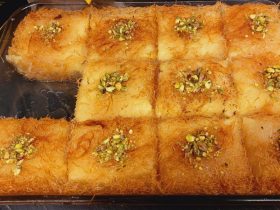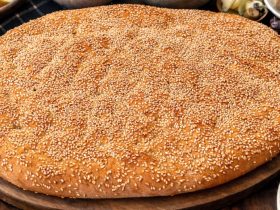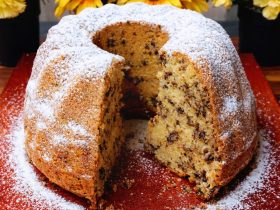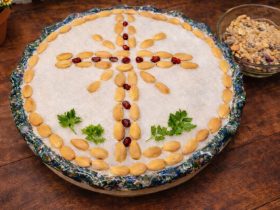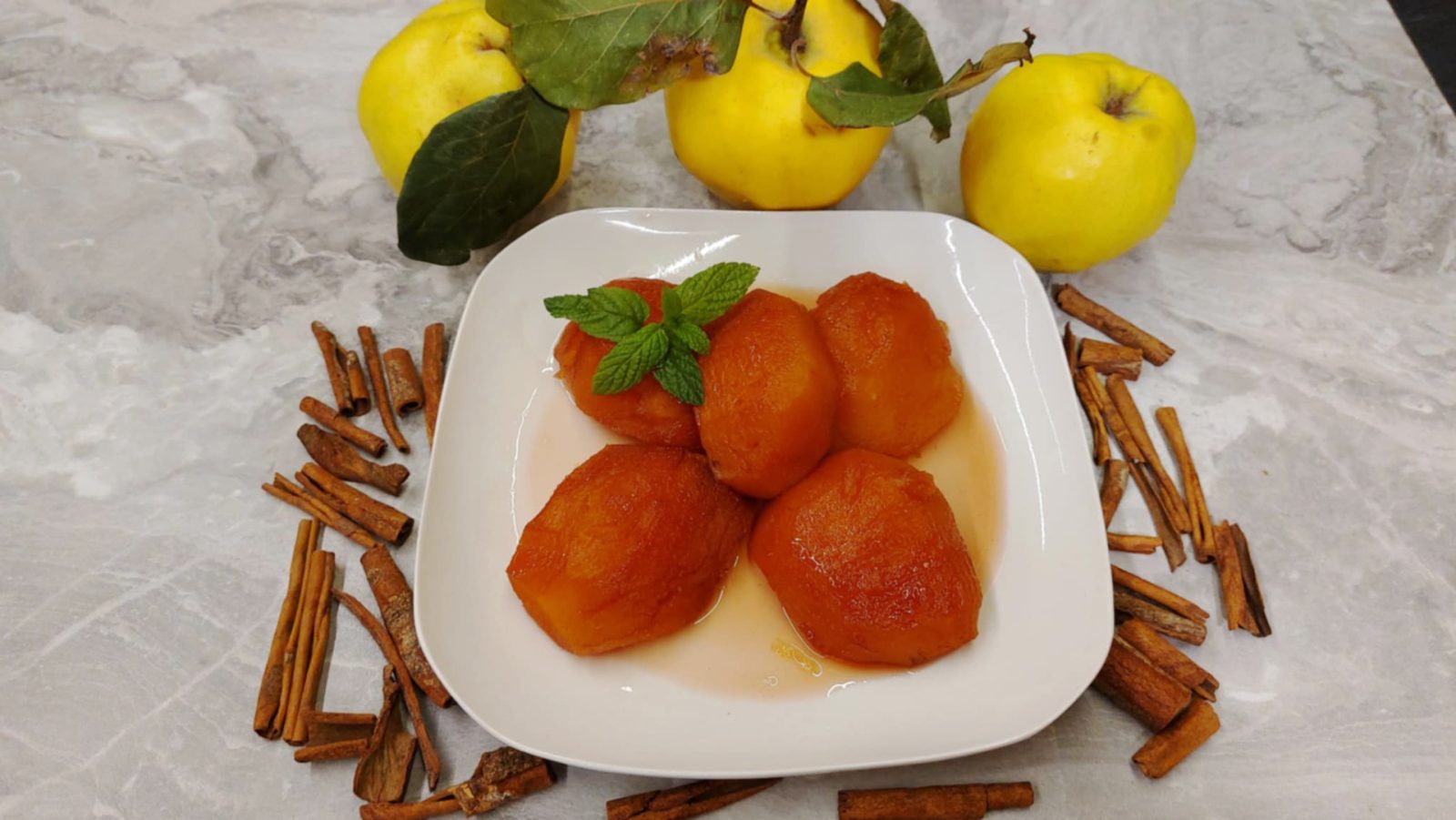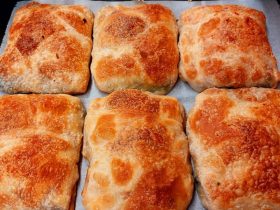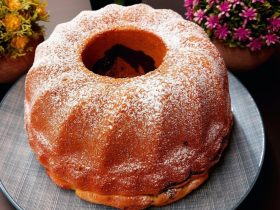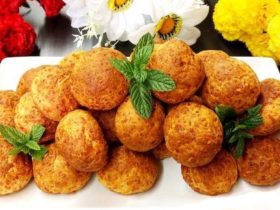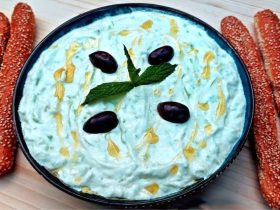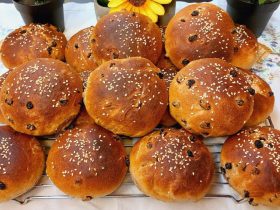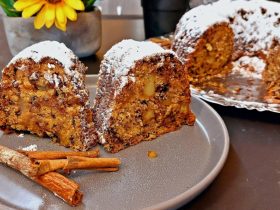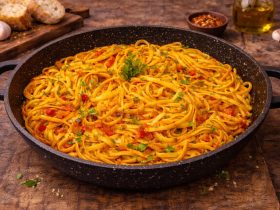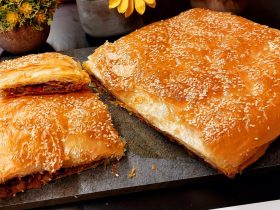These baked quinces with honey are one of the healthiest and most aromatic traditional Greek desserts. Slow-roasted in red wine, cognac, and spices, they become soft, glossy, and deeply flavored — without a single gram of refined sugar. A guilt-free, elegant dessert that tastes like autumn in Greece.
Naturally Sweet, Traditionally Greek
If you’re looking for a dessert that’s both healthy and elegant, these baked quinces with honey are the perfect choice. This recipe transforms simple quinces into a soft, amber-colored dessert full of Mediterranean aroma — with no added sugar at all.
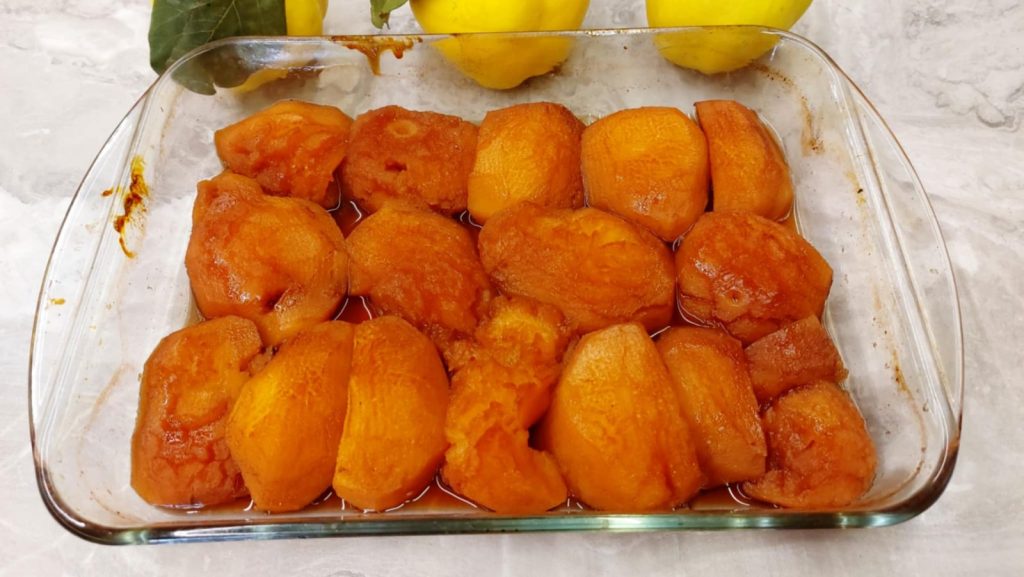
The combination of red wine, cognac, honey, and cinnamon creates a rich, caramel-like syrup that coats each piece of fruit beautifully. Slow baking brings out the quinces’ natural sweetness and turns them tender without falling apart.
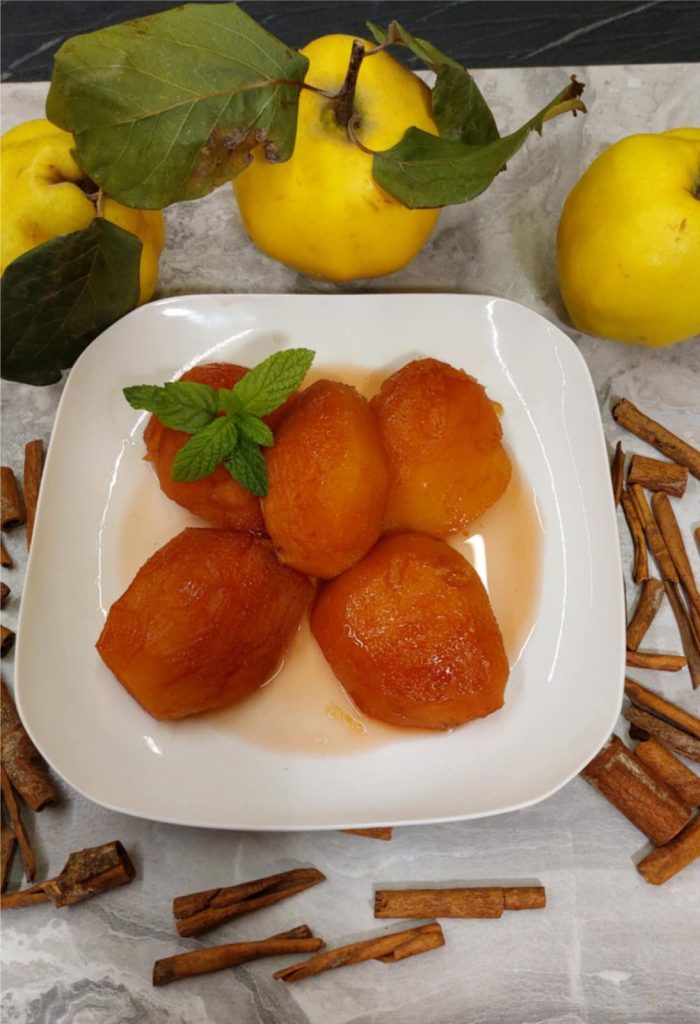
A Dessert That Feels Like Autumn
This traditional Greek recipe is often made during fall, when quinces are in season. It’s naturally sweetened with honey — making it perfect for those who want to avoid refined sugar without sacrificing taste.
Serve the quinces warm or chilled, with a drizzle of syrup from the pan. They pair beautifully with Greek yogurt, vanilla ice cream, or even a spoon of mascarpone.
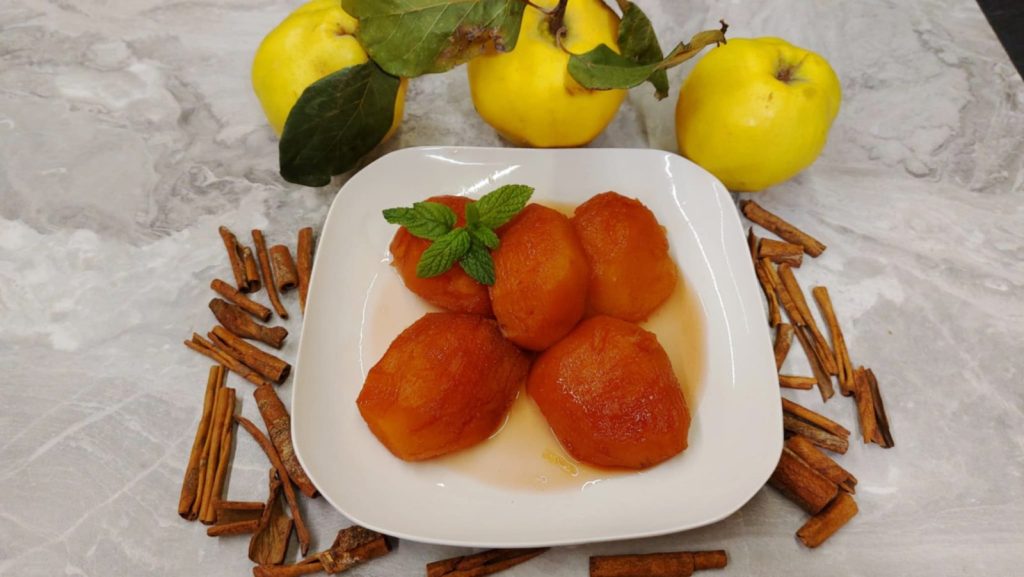
Tips for Perfect Baked Quinces
- Choose ripe, aromatic quinces for the best flavor.
- Don’t skip the spice pouch — it infuses the dessert with warmth and depth.
- For extra shine, brush the quinces with a little honey before serving.
This recipe embodies the heart of Greek home cooking — simple, natural ingredients and the slow pleasure of transformation.
Related Recipes
- Greek Quince Spoon Sweet with Cinnamon & Vanilla
- Greek Quince Paste (Kydonopasto)
- Apple Tart with Apple Cinnamon Jam
Nutrition Facts
6 servings per container
- Amount Per ServingCalories190
- % Daily Value *
- Total Fat
0.3g
0%
- Sodium 3mg 1%
- Total Carbohydrate
40g
15%
- Dietary Fiber 3.5g 11%
- Total Sugars 36g
- Protein 0.6g 0%
* The % Daily Value tells you how much a nutrient in a serving of food contributes to a daily diet. 2,000 calories a day is used for general nutrition advice.
